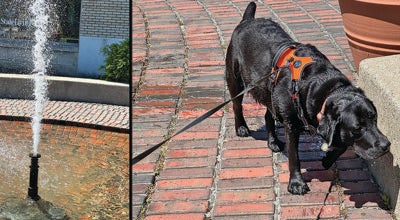Proud to be Appalachian
Published 7:07 am Saturday, February 8, 2020
The more I learn about my heritage and the culture of my ancestors, the deeper my commitment is to carrying on the characteristics that run through our veins.
My work as Appalachian Outreach Coordinator in Southwest Ohio allows me to interact with many who exemplify the spirit of Appalachia.
For generations, people of our culture were scattered among the bigger northern cities, seeking a better life for their families. They thought good-paying jobs would be the answer to the longing of their hearts. So they left their family homestead and their rural communities in search of the Promised Land.
In the 1960s, our people migrated to places such as Cincinnati, Cleveland, Detroit and Chicago, where there were an abundance of factory jobs.
I was recently told that many Appalachians settled in Dayton because “that’s where the car broke down.” We brought our beloved culture with us, though we weren’t really conscious that it was a culture. We just thought this is how people are supposed to be.
I was able to take part in “Ringin’ in the Appalachian New Year,” a celebration of the Appalachian culture in Cincinnati. This was a beautiful day of pot luck meals, crafts from back home and live folk music.
The best part of the day was the visiting that went on among the people. The atmosphere was not of glamour or prestige in the worldly sense. These were people who appreciated simple pleasures: good soup beans, fried chicken, crochet treasures and self-taught amazingly talented musicians.
I went from table to table, meeting new people and hearing their stories. These Urban Appalachians shared with me lives of hardship and heartache, but with intense faith and deep desire to know a better life, yet content in spirit with having their families around them and plenty of food to feed their children.
Culture is like an iceberg. We only see the surface, the awareness we have of things like food, the way we talk, music, dress, festivals and what we consider as beautiful. But deeper, out of our conscious awareness, are embedded parts of our being such as beliefs, perceptions, assumptions, desires, values and expectations.
I once was talking with a Native American man who told me his people believe in “blood memory.”
This is the belief that, when a baby is born, he carries with him the characteristics, beliefs and even experiences that molded his ancestors.
This caused me to ponder, “Are my people before me part of my DNA? Is that why I long for understanding of things I cannot explain to others? Is that why I have an insatiable compelling need to be who I am in representation of my ancestors?”
Now don’t get me wrong, I do not believe in bad blood: the idea that if your daddy was a scoundrel then you were ill fated to be the same. But I do believe I may carry the wounds and victories of my people, and then be compelled to make better in character and in ways of treating others.
I left home at 17 years of age. I started a journey at that time that led me to city life. I married a city boy from a far different upbringing than my own.
Even after 38 years of marriage, my husband and I marvel at the deeply-ingrained differences in approaches to problem solving and concept of fairness we have. Not that one’s view is better or more correct than the other, simply that we are different.
The older I get, the louder the hills of Lawrence County call to me. I have the longing to know my people better and to honor their hard work and determination that prepared me for the life I now live.
I pray I can pass on to my children, my many nieces and nephews, and their children the pride to carry on this strong and beautiful culture.
Nora Swango Stanger, a Lawrence County native and Appalachian outreach coordinator for Sinclair Community College, can be reached at norastanger@gmail.com.




